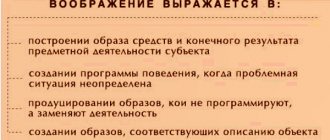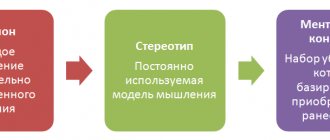Is this real
It's worth starting with something encouraging.
Sherlock Holmes' abilities are absolutely real. And in general, the legendary character was copied by Conan Doyle from a living person - professor at the University of Edinburgh Joseph Bell. He was widely known for his ability to guess a person's character, background and profession from the smallest details. On the other hand, the existence of one real outstanding person does not guarantee success for everyone who tries to repeat his achievements. Mastering abilities comparable to Holmes's is incredibly difficult. In a different scenario, Scotland Yard wouldn't be running around Baker Street for clues, right?
Where is deduction used?
We use this kind of thinking every day without even realizing it. We don’t notice that logical chains are being built in our heads: warm clothes protect from the cold, it’s cold outside, a jacket means warm clothes, I’ll put on a jacket. Everything happens automatically in a split second.
But the method of deductive thinking is used consciously in many areas:
- Disputes and discussions . When you need to convince your opponent to accept your point of view, it is enough to find an obvious statement with which he agrees. And then logically connect the premise with the desired conclusion. A manager at a car dealership convinces a client to buy an expensive car: “Make up your mind, we only live once. Why put off your dream?
- Mathematics . The proof of the theorem is based on axioms - statements that are true by default.
- Forensics . Using the overall picture of the incident, the expert establishes the individual circumstances of the case.
- The science . Deduction is the main logical method of proof. A scientist takes a hypothesis (what is it?) that needs to be confirmed or refuted, and draws consequences. If during experiments it is possible to discover these consequences, then the hypothesis is considered proven.
- Philosophy . This is a science where experiments are mental and proofs are logical. In the same physics, you can throw an apple into the sky to verify the existence of gravity. Deduction in philosophy is a way to logically justify a hypothesis.
What he does is real. But what is he doing?
He acts, demonstrates his arrogance, pride and... remarkable intelligence. All this is justified by the ease with which he solves crimes. But how does he do it?
Sherlock Holmes's main weapon is the deductive method. Logic backed by intense attention to detail and outstanding intelligence.
To this day there is debate as to whether Holmes uses deduction or induction. But most likely the truth is somewhere in the middle. Sherlock Holmes accumulates his reasoning, experience, clues to the most complicated cases, systematizes them, collecting them into a common base, which he then successfully uses, using both deduction and induction. He does it brilliantly.
Most critics and researchers are inclined to believe that Conan Doyle did not make mistakes and Holmes really uses the deductive method. For simplicity of presentation, further we will talk about it.
What is the essence of deductive logic
The deductive method begins with a hypothesis that a person believes to be true a priori, and then he must test it through observations. Books on philosophy and psychology define this concept as an inference built on the principle from the general to the particular according to the laws of logic.
Unlike other types of logical reasoning, deduction derives a new idea from others, leading to a specific conclusion applicable to a given situation.
The deductive method allows our thinking to be more specific and effective.
The bottom line is that deduction is based on deducing the particular on the basis of general premises. In other words, this is reasoning based on confirmed, generally accepted and generally known general data, which leads to a logical factual conclusion.
The deductive method is successfully used in mathematics, physics, scientific philosophy and economics. Doctors and lawyers also need to use deductive reasoning skills, but they are useful for any profession. Even for writers working on books, the ability to understand characters and draw conclusions based on empirical knowledge is important.
Deductive logic is a philosophical concept, it has been known since the time of Aristotle, but it began to be intensively developed only in the nineteenth century, when developing mathematical logic gave impetus to the development of the doctrine of the deductive method. Aristotle understood deductive logic as evidence with syllogisms: reasoning with two premises and one conclusion. Rene Descartes also emphasized the high cognitive or cognitive function of deduction. In his works, the scientist contrasted it with intuition. In his opinion, intuition directly reveals the truth, and deduction comprehends this truth indirectly, that is, through additional reasoning.
In everyday reasoning, deduction is extremely rarely used in the form of a syllogism or two premises and one conclusion. Most often, only one message is indicated, and the second message, as well-known and accepted by everyone, is omitted. The conclusion is also not always formulated explicitly. The logical connection between premises and conclusions is expressed by the words “here”, “therefore”, “therefore”, “therefore”.
What does the mind of Sherlock Holmes do?
Deductive method
This is the detective's main weapon, which, however, would not work without a number of additional components.
Attention
Sherlock Holmes captures even the smallest details. If not for this skill, he simply would not have material for reasoning, evidence and leads.
Knowledge base
The detective himself said it best:
All crimes show great generic similarity. They (Scotland Yard agents) introduce me to the circumstances of a particular case. Knowing the details of a thousand cases, it would be strange not to solve the thousand and one.
Sherlock Holmes
The palaces of the mind
This is his excellent memory. This is the repository that he turns to almost every time he is looking for a solution to a new riddle. This is the knowledge, circumstances and facts accumulated by Holmes, a significant part of which cannot be obtained anywhere else.
Constant analysis
Sherlock Holmes analyzes, reflects, asks questions and answers them. Often he even resorts to double analysis, it is not in vain that the detective constantly acts together with his partner Dr. Watson.
Deduction and induction
When the mind is prepared and saturated with various useful information, you can move on to exercises for the development of logical thinking: deductive and inductive. After all, Conan Doyle’s character used both methods, which, alas, is shown in the BBC series “Sherlock” somewhat weaker than in the books of Arthur Conan Doyle.
Deduction is a method in which the particular is logically deduced from the general: “All metals conduct current. Gold is a metal. This means gold conducts current.” Induction, on the contrary, brings the general out of the particular: “I am a Muscovite and I remember that snow fell every winter. This means that it always snows in Moscow in winter.” Sherlock Holmes, inspecting a crime scene or assessing those around him, often went from the particular to the general and back again, freely moving in both logical directions: “John has a military bearing, tanning on his arms only up to the sleeves, a psychosomatic limp, which means he has been in war. Where have there been military operations recently? In Afghanistan. So, in the war in Afghanistan.”
However, his main conclusions were deductive and arose in the head of the great detective when he was tormenting his violin or thinking while smoking a pipe. At these moments, Sherlock Holmes turned to his phenomenal knowledge of history and criminology and classified the case based on the “family tree of crimes.” He assigned him a place in the group: “Murder over an inheritance,” “Murder out of jealousy,” “Theft of a will,” etc. This provided a motive, and the motive provided suspects. This was the essence of Sherlock Holmes' deductive method. Induction gave him food for thought, while deduction gave him the answer.
There are many exercises to train logical thinking. For example, “Concepts in order”, within which it is necessary to arrange several words from particular meanings to general ones or vice versa. Chess or poker may also be useful. In addition, it is important to learn to avoid logical errors in judgments, having studied them, for example, in the book by Avenir Uemov “Logical errors. How they prevent you from thinking correctly.”
How to learn it
Pay attention to the little things
Bring your ability to pay attention to details to automaticity. In the end, only the details matter. They are the material for your reasoning and conclusions, they are the keys to unraveling and solving the problem. Learn to look. Look so as to see.
Develop your memory
This is the only way you can learn to analyze, derive your own statistics and form patterns. Only an excellent memory will save you in difficult times when you have no other sources of information. It is memory that will help you correctly analyze all the little things that captured your attention when you hit the trail.
Learn to formulate
Document your guesses and conclusions, draw up a “dossier” on passers-by, write verbal portraits, build harmonious and clear logical chains. This way you will not only gradually master Sherlock’s method, but also make your thinking clearer and clearer.
Go deeper into the area
One could say “broaden your horizons,” but Holmes would not approve of this lengthy formulation. Try to deepen your knowledge in your chosen field, avoid information garbage and useless knowledge. Try to grow in depth, not in breadth, no matter how absurd it may sound.
Concentrate
Above all, Holmes is a genius of concentration. He knows how to isolate himself from the world around him when he is busy with work, and does not allow distractions to tear him away from what is important. He should not be distracted by Mrs. Hudson's chatter or the explosion in the neighboring house on Baker Street. Only a high level of concentration will allow you to think soberly and logically. This is a prerequisite for mastering the method of deduction.
Learn body language
A source of information that many people forget about. Holmes never neglects him. He analyzes a person’s movements, how he behaves and gestures, pays attention to facial expressions and fine motor skills. Sometimes a person gives away his hidden intentions or involuntarily signals his own lies. Use these tips.
Develop your intuition
It was intuition that often suggested the famous detective the right decision. Hordes of charlatans have pretty much ruined the reputation of the sixth sense, but this does not mean that it should be neglected. Understand your intuition, learn to trust it and develop it.
Take notes
Moreover, notes of various kinds. It makes sense to keep a diary and write down what happened to you during the day. This is how you analyze everything that you have learned and noticed, summarize and draw a conclusion. The brain is actively working during such an analysis. You can keep field notes where you note your observations of the world around you and the people around you. This will help systematize observations and derive patterns. For some, a blog or an electronic diary is more suitable - everything is individual.
Ask questions
The more questions you ask, the better. Be critical of what is happening, look for reasons and explanations, sources of influence and influence. Build logical chains and cause-and-effect relationships. The ability to ask questions will gradually give rise to the skill of finding answers.
Solve problems and puzzles
Anything: from ordinary problems from school textbooks to complex puzzles involving logic and lateral thinking. These exercises will force your brain to work, look for solutions and answers. Just what you need to develop deductive thinking.
Create puzzles
Have you already learned how to quickly solve them? Try making your own. The task itself is unusual, so it won’t be easy. But the result is worth it.
Read. More. Better
It won't be what you read that matters, but how you do it. To develop deductive reasoning, you need to analyze what you read and pay attention to details. Compare information from different sources and draw parallels. Include the information received in the context of the knowledge you already have and expand your file cabinet.
Listen more, talk less
Holmes could not have unraveled cases so easily if he had not listened to every word of his client. Sometimes one word decides whether a case will hang in the air or be unraveled, whether the legendary detective will be interested in it or not. Just remember the huge hound in “The Hound of the Baskervilles” and one word that changed the girl’s life in the second episode of the fourth season of the BBC series.
Love what you do
Only strong interest and great desire will help you reach the end. This is the only way you will not deviate from the path of constant difficulties and seemingly insoluble tasks. If Holmes had not loved his work, he would not have become a legend.
Practice
I saved the most important point for the finale. Practice is the key to mastering deductive reasoning. The key to the Holmes method. Practice anytime, anywhere. Even if at first you are not sure of the correctness of your judgments. Even if at first you will be more like Dr. Watson in your conclusions. Look at people on the subway, on the way to work, take a closer look at those around you at train stations and airports. Only a skill brought to automatism will become truly working.
Deductive thinking can be useful anywhere, and the talents of a legendary detective with constant practice will remain with you for life. Holmes' method is interesting in itself and produces surprising results. So why not try to master it?
Thinking training
The most spontaneous answer to the question of how to become Sherlock might sound like this: “First, buy yourself a black coat.” If we use the terminology of the American psychologist, Nobel laureate Daniel Kahneman, who published the book “Thinking Slowly... Decide Fast” in 2011, this is a reaction of the so-called “fast thinking” - a system that is responsible for momentary knowledge of the world and cataloging instinctive sensations. “Fast thinking” reacts to circumstances instantly and very directly, as a result of which it often makes mistakes, forcing us to make irrational decisions.
But in order to think like Sherlock Holmes, you need to use a different system - “slow”. It is she, according to Kahneman, who is responsible for the deliberate and conscious formation of thoughts, decisions, conclusions and assessments. Like any function of the human brain, the slow thinking system can be strengthened and developed.
As in sports, training should begin with light exercises in small quantities, gradually moving to more complex and longer ones. To begin with, you can borrow several school textbooks from friends in different subjects: mathematics, physics, chemistry and other disciplines that involve solving problems. This will help not only to train the slow thinking system (after all, it is this system that is used in the process of intellectual activity), but also to broaden one’s horizons, restoring knowledge lost since schooling and identifying interesting scientific areas for study.
With proper organization and planning, a home office is not a punishment, but an opportunity. For business - to save resources, for employees - to get rid of the feeling that life is passing by. If you do not neglect the rules of the organization, learn management from a distance, use modern technologies and systems, you can set up an effective home office for employees in just one day. More about the BeeFREE solution from Beeline Business at the link.
Corrosiveness is another quality required by a future master of deduction. To cultivate it in yourself, you need to find areas that truly arouse curiosity. What exactly they will be, by and large, does not matter: an emotional response always pushes a person to deeply study a subject, forces him to constantly increase the amount of knowledge, and with it the extent of the border of contact with the unknown, the existence of which invariably prompts the mind to new searches.
Research in Economics
Induction and deduction in economics are commonplace. Thanks to these methods, all analytical and statistical studies are carried out and specific decisions are made. For example, through deduction, economists study consumer demand for mortgage lending. The results obtained during the research are analyzed, the overall result is derived, and on its basis a decision is made to modernize the offer for this type of lending for the population. Economic research is carried out according to a certain algorithm. First, a research object is selected, which will become the basis for the work of statisticians. Next, a hypothesis is put forward; the final result of the study largely depends on the correctness of its formulation. In order to obtain reliable information, methods are selected and an algorithm of actions is created. The results are considered reliable only if the experiments are carried out not 1-2 times, but in several series of 2-3 studies.
How can deduction be applied in practice?
Judging by the way Sherlock Holmes unravels detective stories using the deductive method, it can be adopted by investigators, lawyers, and law enforcement officers. However, mastery of the deductive method will be useful in any field of activity: students will be able to quickly understand and remember the material better, managers or doctors will be able to make the only correct decision, etc.
There is probably no area of human life where the deductive method would not be useful. With its help, you can draw conclusions about the people around you, which is important when building relationships with them. It develops observation, logical thinking, memory and simply makes you think, preventing the brain from aging ahead of time. After all, our brain needs training no less than our muscles.
Why develop the method of deduction?
Every day we have to deal with proving the truth of statements in a wide variety of situations. The method of deduction is widely used in all areas of our lives and has a huge impact on the truth of certain judgments. Suppose you or someone you know gets into a very unpleasant situation. An investigation is underway, there is a crime, there is a defendant, detectives, lawyers, prosecutors, judges. One conclusion must be drawn: is the person guilty or innocent? To do this, you must be able to both substantiate a person’s guilt and prove his innocence.
The outcome, and, most importantly, the correctness of the final conclusion, is of great importance for a person who finds himself in such a difficult situation. Therefore, it is extremely important to draw conclusions about his guilt or innocence from the available facts, convincingly, conclusively and correctly. And this is just one example. There are many situations in which the truth of certain statements is important. This is why knowledge and understanding of how to develop deduction is useful to anyone.
Tips for developing deduction
So, deductive abilities should be developed in conjunction with logical thinking. It is very important to be patient and attentive here. Deduction does not tolerate haste; its methods can be compared to unraveling a ball of thread. If you make one careless movement, the knot becomes tighter. To train deductive abilities, it is important to follow several rules.










